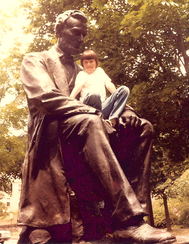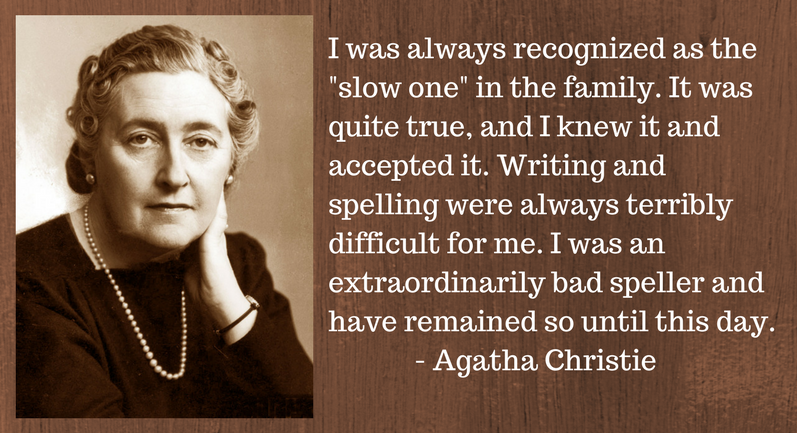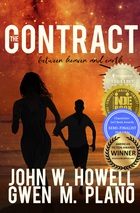
When my eldest son was a toddler, I was a grad student at Purdue University. The psych department needed children for IQ testing, and I agreed to let my son be part of their study. Afterwards, the department chair met with me and explained that they did not have the ability to test my son’s full potential, because his IQ exceeded 140.
Fast forward several years to Ossining, NY. Unbeknown to me, this same child was being tested again – this time to see if he was mentally delayed. His teacher thought his reading and writing problems were due to a low IQ. The school psychologist requested to meet with me, and I walked into her office not knowing why I was there.
I soon learned about the teacher’s concern and the testing that was done and then was told the following. My son’s IQ was as the Purdue psych department had suggested, but he had learning disabilities. I didn’t know what that was, so the psychologist began by giving me a list of famous people who had LD – people like the following: Thomas Jefferson, Albert Einstein, Stephen Hawking, John F Kennedy, Charles Darwin, Agatha Christie, George Washington, Octavia Estelle Butler, WB Yeats, George Bernard Shaw, F. Scott Fitzgerald, Benjamin Franklin, Jules Verne, John Irving and many, many others.
She then proceeded to explain that her doctoral research focused on learning disabilities, and she had developed a one-on-one tutoring program for children such as my son. The long and the short of it is that he had daily tutoring for a couple of years; and I became a tutor to offset the cost of such treatment. Today, my son is a successful writer.
Why do I share all of this?
My personal experience and my work with LD students has alerted me to challenges that most may not see. For example, my sister can’t write a sentence without misspelling a word or leaving out notable punctuation. She has carried the burden of critique all her life. Even though her insights may be brilliant, her written expression of those insights can be quite baffling. She did not have the tutoring my son had.
Many writers deal with LD and most resort to editors to catch the comma, the period and the misspellings. The editors (and readers) can see that which these writers do not perceive.
Yesterday, I came upon an article by Pete Quily that fascinated me. It lists advantages for LD writers with ADHD. I thought the list impressive, for it includes the following:
- Ability to hyper-focus for hours on things of interest.
- High levels of curiosity.
- Extreme creativity.
- Great hunters of information.
- Notice what others do not see.
- Challenge the status quo.
- Fast processing minds IF they find the topic interesting.
- High energy levels.
- Multitask with ease, may have 2 or 3 browsers open with multiple tabs.
- Adrenaline (deadlines) helps with focus.
- The impossible is a strong motivator.
Do you know a writer with LD? If you do, she or he may be like John Irving, who was called "lazy" and "stupid" because of his disability. Irving acknowledges, "I write very quickly; I rewrite very slowly. It takes me nearly as long to rewrite a book as it does to get the first draft...Half of my life has been an act of revision."








 RSS Feed
RSS Feed